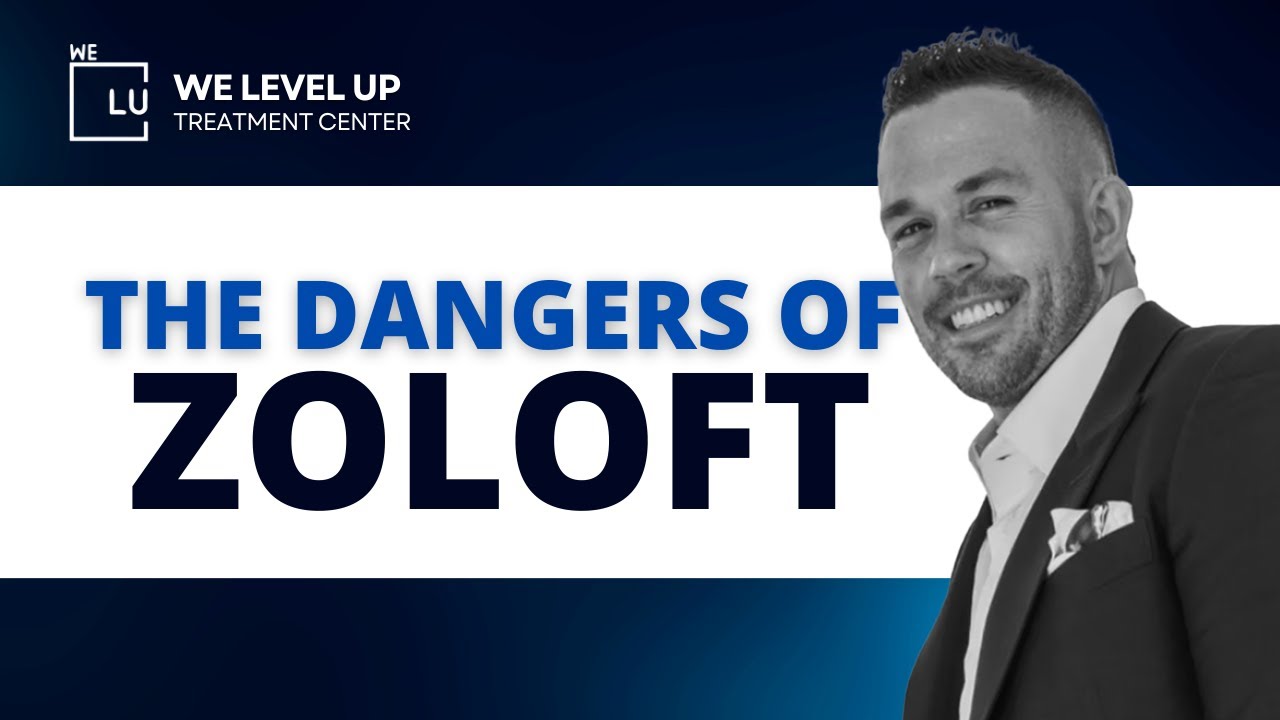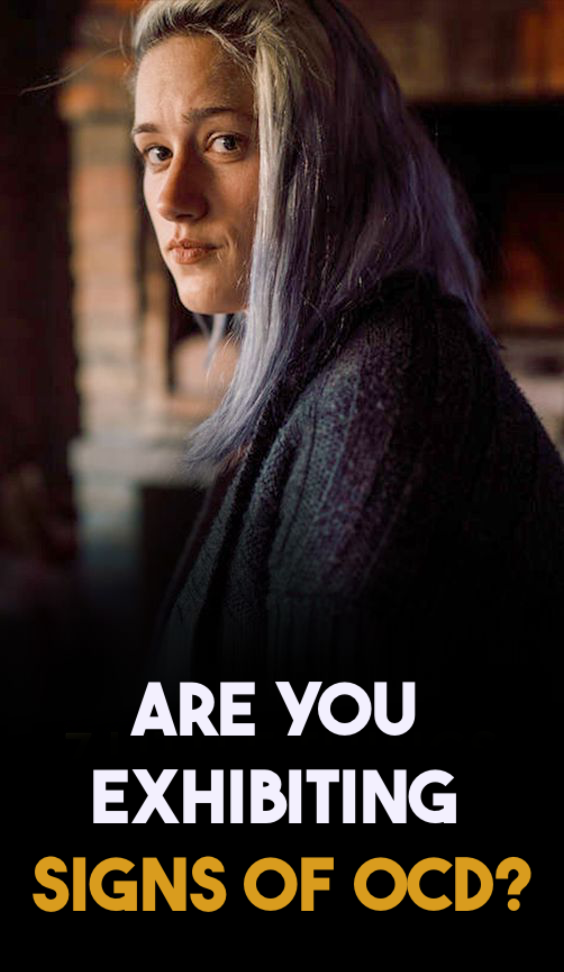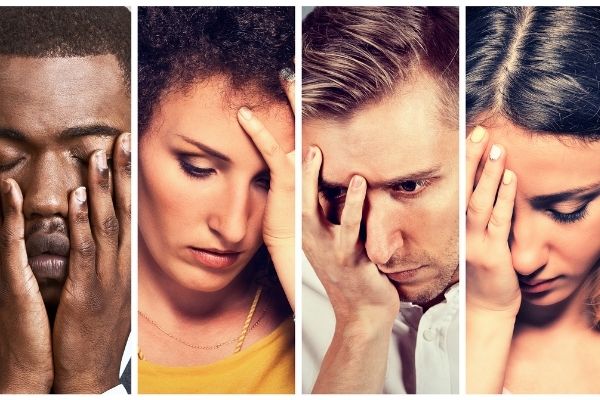What is Anxiety?
Fear is an automatic neurophysiological state of alarm characterized by a fight or flight reaction to present or imminent danger (real or perceived). Anxiety is connected to fear and manifests as a future-oriented mood state that consists of a complex mental, emotional, physical, and behavioral response system associated with preparation for the anticipated events or circumstances perceived as threatening. Anxiety treatment is critical when fear becomes so intense that it hinders us from functioning normally and causes several health risks, such as high heart rate, suicidal ideations, and panic attacks.
According to research published in the US PubMed [1], among individuals reporting a lifetime history of suicide attempts, over 70% had an anxiety disorder.
Anxiety is one of the most common psychiatric disorders, but the actual prevalence is not known as many people do not seek help or clinicians fail to make the diagnosis.
- Specific phobia is the most common, with a 12-month prevalence rate of 12.1%.
- Social anxiety disorder is the next most common, with a 12-month prevalence rate of 7.4%.
- The least common anxiety disorder is agoraphobia (fear of leaving environments they know or consider to be safe), with a 12-month prevalence rate of 2.5%. [2]
Anxiety Symptoms
While occasional anxiety is natural, some people with anxiety disorders experience stress and excessive worry on an extremely high level. They worry a great deal about ordinary things and may even experience panic attacks, which are abrupt, acute episodes of fear.
This anxiety messes with their daily life, making it challenging to do regular activities. It’s tough to control and sticks around longer than it should. You might even avoid certain places or situations to dodge these feelings.
Cognitive symptoms:
- Fear of losing control.
- Fear of physical injury or death.
- Fear of “going crazy.”
- Fear of negative evaluation by others.
- Frightening thoughts, mental images, or memories.
- Perception of unreality or detachment.
- Poor concentration, confusion, distractibility.
- Narrowing of attention, hypervigilance for threat.
- Poor memory.
- Difficulty speaking.
Physiological symptoms:
- Increased heart rate.
- Palpitations.
- Shortness of breath.
- Rapid breathing.
- Chest pain or pressure.
- Choking sensation.
- Dizziness.
- Sweaty.
- Hot flashes.
- Chills.
- Nausea.
- Upset stomach.
- Diarrhea.
- Trembling.
- Shaking.
- Tingling or numbness in arms and legs.
- Weakness.
- Faintness.
- Tense muscles (rigidity).
- Dry mouth.
Behavioral symptoms:
- Avoidance of threat cues or situations.
- Pursuit of safety or reassurance.
- Restlessness and agitation.
- Hyperventilation.
- Freezing, motionless, and difficulty speaking.
Affective symptoms:
- Nervous, tense, wound up.
- Frightened, fearful, terrified.
- Edgy, jumpy, jittery, impatient, and frustrated.
Anxiety Treatment Options
Psychotherapy, medications, or a combination of both are very effective in treating anxiety disorders.
The good news is that individuals experiencing anxiety may find some additional benefits in the management of their condition if they also have coexisting medical illnesses. One example is using breathing training to reduce anxiety attacks, a technique that has demonstrated efficacy. Interestingly, several slow-breathing methods employed in anxiety management are advantageous for patients dealing with conditions like hypertension and asthma. Moreover, efforts to reduce hyperventilation, a common symptom of anxiety, can contribute positively to the well-being of individuals with cardiovascular disease. In this way, addressing anxiety not only improves mental health but can also have positive ripple effects on concurrent medical conditions.

Skip To:
Learn More:
- How to Calm Anxiety Attacks? Symptoms, Causes, and Treatment
- Panic Attack vs Anxiety Attack, What’s the Difference?
- What Does Anxiety Feel Like? Why It Happens? Signs and Causes
- Top 10 Tips on How to Reduce Anxiety Immediately
- Beta Blockers for Anxiety Benefits, Dangers, and Side Effects
- Separation Anxiety in Adults, Causes, Symptoms, and Treatment
- Does Alcohol Help Anxiety?
- Dangers of Mixing Anxiety Medication and Alcohol
- What is Sleep Anxiety?
- What to Know About Valium for Anxiety
- Alcohol and Anxiety Co-Occurring Disorders
Most people will have a recurrence of anxiety disorder symptoms even after a symptom-free period. Treatment adherence is a significant issue, and thus, relapse of symptoms is common. According to research in the NCBI, only about 60% of patients achieve remission (a temporary recovery) within six months. Triggers for poor outcomes include:
- Chronic illness.
- High interpersonal sensitivity.
- Unmarried.
- Low social class.
- Living alone.
Anxiety disorders are also associated with decreased quality of life as the patient cannot function normally in their social and family life. The disorders are correlated with an increased risk of comorbid medical conditions, such as addiction and smoking. [3]
Anxiety Therapy
Psychotherapy, or talking therapy, helps people understand their experiences and develop effective coping methods.
There are many types of psychotherapy, including the following:
- Cognitive behavioral therapy.
- Interpersonal therapy.
- Psychodynamic therapy.
- Family therapy.
Cognitive behavioral therapy is a standard treatment. It aims to help individuals identify and change negative thoughts or beliefs about social situations. Exposure therapy, or cognitively delivered exposure, can also help. With this approach, the patient gradually works up to facing the occasions they fear with a therapist and in a safe setting.
Many support groups for anxiety can also help. They operate in a way that allows participants to observe initially without feeling pressured to speak.
Members of the support groups typically establish a nonjudgmental environment by being more understanding of the difficulties connected with anxiety. Importantly, these groups generally enable members to watch before actively engaging, installing a safe and welcoming setting. In general, anxiety support groups provide a helpful environment where people may share their experiences and work on coping mechanisms.

Anxiety Medication Names
Anxiety disorders are highly treatable with either cognitive behavioral therapy (CBT) or pharmacotherapy in the form of SSRIs and SNRIs or beta-blockers.
SSRIs include:
- Fluoxetine (Prozac).
- Sertraline (Zoloft).
- Paroxetine (Paxil).
- Escitalopram (Lexapro).
- Citalopram (Celexa).
- Fluvoxamine (Luvox).
- Vilazodone (Viibryd).
- Vortioxetine (Trintellix).
SNRIs include:
- Venlafaxine (Effexor).
- Duloxetine (Cymbalta).
- Desvenlafaxine (Pristiq).
- Levomilnacipran (Fetzima).
If you’re struggling with anxiety, benzodiazepines (Rivotril, Xanax, Ativan) might deliver fast relief, but they come with hazards, including dependency and sleepiness. For brief periods, doctors frequently prescribe them.
Beta-blockers lessen the effects of adrenaline, which is advantageous when a rapid heartbeat is a problem, such as when delivering a public speech. For persistent social anxiety, though, they’re not the recommended treatment.
Over the Counter Anxiety Medications
Some people find relief from mild anxiety symptoms using OTC options, including:
- Valerian root.
- Passionflower.
- Kava.
- Melatonin.
- L-Theanine.
Before trying any natural remedies or supplements, consult your doctor to ensure their safety and prevent potential interactions with any prescription medications you may currently be using.
Self-Management and Tips on How to Calm Anxiety
Healthcare professionals can significantly help ease your anxiety, but there are things you can also do at home and wherever you may be. Try incorporating the following strategies to help you calm down:
- Deep breathing exercises.
- Mindfulness meditation.
- Regular physical exercise.
- Adequate sleep.
- Limiting caffeine intake.
- Establishing a routine.
- Positive self-talk.
- Seeking social support.
- Time management.
- Progressive muscle relaxation.
Talking to your doctor can make a difference if you struggle to face your anxiety. Doctors have various ways to help with anxiety. They might connect you with a therapist or administer medications to ease it. Both therapy and meds work well, and combining them is even more effective. Plus, you usually won’t need them forever—during tough times.
Get Help. Get Better. Get Your Life Back.
Searching for Accredited Drug and Alcohol Rehab Centers Near You? We Level Up Texas Is Opening Soon!
Even if you have failed previously and relapsed, or are in the middle of a difficult crisis, we stand ready to support you. Our trusted behavioral health specialists will not give up on you. When you feel ready or just want someone to speak to about therapy alternatives to change your life call us. Even if we cannot assist you, we will lead you to wherever you can get support. There is no obligation. Call our network hotline today.
FREE Addiction Hotline – Call 24/7Anxiety Test and Diagnosis
Consult your doctor if you’re experiencing anxiety so that any physical health conditions may be ruled out. They can assess if an underlying medical problem is causing your anxiety. The assessment may include:
- Clinical interview.
- Physical examination.
- Psychological evaluation.
- DSM-5 criteria assessment.
- Review of symptoms and medical history.
- Anxiety assessment tools/tests.
- Collaboration with mental health professionals.
- Rule out other medical conditions.
- Observation of behavior.
- Diagnostic discussion with the patient.
What Causes Anxiety?
Anxiety disorders seem to happen when our genes, the experiences we go through, and how we deal with stress or challenging situations all come together. Some people might be more prone to anxiety because of their genes, and when they face difficult or traumatic events, it can lead to noticeable anxiety symptoms.
The following conditions can also cause anxiety:
- Medications.
- Herbal medications.
- Substance abuse.
- Trauma.
- Childhood experiences.
- Panic disorders.
Depression and Anxiety Co-occurring Disorder
Depression and anxiety often co-occur, forming a complex condition where you may experience symptoms of both disorders simultaneously. Depression is characterized by:
- Persistent feelings of sadness.
- Hopelessness.
- A lack of interest or pleasure in activities.
Aiming to treat anxiety and depression symptoms simultaneously, effective treatment strategies provide more thorough and valuable mental health assistance.
Severe Anxiety Treatment
The treatment for severe anxiety frequently has to be all-encompassing. For people with severe anxiety, hospitalization or inpatient programs may be advised in some situations to offer a controlled and encouraging setting for healing.
Inpatient Anxiety Treatment
Inpatient anxiety treatment offers several advantages for individuals experiencing severe symptoms. It provides a carefully regulated, well-watched atmosphere that guarantees regular daily assistance and attention.
Tips on How to Find Anxiety Treatment Near Me
If your anxiety attacks are coupled with self-harming behavior, alcohol or drug use, or suicidal ideation, seek immediate medical help. Someone who is a danger to themselves or others shouldn’t work through their symptoms at home; they should receive emergency care to reach a stable mental place.
- For the Suicide Crisis hotline, call 988. You may also dial 911 for emergency help.
- For anxiety treatment, consult your primary care doctor.
- Contact your health insurance provider.
- Ask for recommendations from friends or family.
- Use online directories or search engines.
- Explore community mental health resources.
- Check with university or college counseling services.
- Contact local psychiatric hospitals or clinics.
- Seek guidance from support groups or hotlines.
The symptoms of the multiple disorders that can happen alongside anxiety can present complex and similar symptoms. This is why accurate diagnosis requires a highly trained professional team with years of experience.
Opening Soon! First-Class Facilities & Amenities
World-Class High-Quality Addiction & Mental Health Rehabilitation Treatment
Coming Soon! Rehab Centers TourRenowned Addiction Centers. Serene Private Facilities. Inpatient Rehab Programs Vary.
FREE Addiction Hotline – Call 24/7Proven recovery success experience, backed by a Team with History of:
15+
Years of Unified Experience
100s
5-Star Reviews Across Our Centers
10K
Recovery Success Stories Across Our Network
- Low Patient to Therapist Ratio
- Onsite Medical Detox Center
- Comprehensive Dual-Diagnosis Treatment
- Complimentary Family & Alumni Programs
- Coaching, Recovery & Personal Development Events
The Connection Between Addiction and Anxiety
Alcoholism and drug abuse might result from attempts to self-medicate mental health problems, such as anxiety, without a proper diagnosis. This self-medication can lead to dependency and addiction wildly when undiagnosed mental disorders coexist. Untreated dual diagnoses can exacerbate drug abuse, with some substances triggering psychotic attacks that may persist. Addressing anxiety disorders is crucial not only for understanding the roots of substance abuse but also due to the biochemical imbalances that contribute to physical dependence, making a comprehensive approach beyond just behavioral therapy essential for effective treatment.
We Level Up Texas Dual Diagnosis Rehab Center (Opening Soon!)
The healthcare professionals at We Level Up Texas anxiety treatment and dual diagnosis rehab believe that addressing both the underlying problems and addiction together boosts the chances of successful, relapse-free recovery. Once we identify and start treating the mental health problems tied to alcohol or drug dependency, it’ll bring patients closer to long-term sobriety.
Substance use disorders often begin as a way to cope with anxiety issues and social status or as a form of self-medication. Some risk factors are situational, while others may be linked to brain imbalances. Acknowledging a mental health issue is a crucial step, leading to more effective treatment for concurrent alcoholism or drug addiction.
Professional guidance is vital to identify underlying conditions, and dual diagnosis treatment typically involves detox and a focused residency program to equip individuals with tools for long-term recovery.

Opening Soon! World-class, Accredited, Anticipated 5-Star Reviewed, Effective Addiction & Mental Health Programs. Complete Behavioral Health Inpatient Rehab, Detox plus Co-occuring Disorders Therapy.
FREE Addiction Hotline – Call 24/7End the Addiction Pain. End the Emotional Rollercoaster. Get Your Life Back. Start Drug, Alcohol & Dual Diagnosis Mental Health Treatment Now. Get Free No-obligation Guidance by Substance Abuse Specialists Who Understand Addiction & Mental Health Recovery & Know How to Help.
5 Effective Ways To Manage Anxiety (2024 TIPS) Informative Video
Start a New Life
Begin with a free call to an addiction & behavioral health treatment advisor. Learn more about our dual-diagnosis programs. The We Level Up treatment center network delivers recovery programs that vary by each treatment facility. Call to learn more.
- Personalized Care
- Caring Accountable Staff
- World-class Amenities
- Licensed & Accredited
- Renowned w/ 100s 5-Star Reviews
We’ll Call You
Search We Level Up Texas Anxiety Treatment, Mental Health Topics, and Resources
Sources
[1-2] Nepon J, Belik SL, Bolton J, Sareen J. The relationship between anxiety disorders and suicide attempts: findings from the National Epidemiologic Survey on Alcohol and Related Conditions. Depress Anxiety. 2010 Sep;27(9):791-8. Doi: 10.1002/da.20674. PMID: 20217852; PMCID: PMC2940247.
[3] Cackovic C, Nazir S, Marwaha R. Panic Disorder. [Updated 2023 Aug 6]. In: StatPearls [Internet]. Treasure Island (FL): StatPearls Publishing; 2023 Jan-. Available from: https://www.ncbi.nlm.nih.gov/books/NBK430973/
[5] Center for Substance Abuse Treatment (US). Trauma-Informed Care in Behavioral Health Services. Rockville (MD): Substance Abuse and Mental Health Services Administration (US); 2014. (Treatment Improvement Protocol (TIP) Series, No. 57.) Chapter 3, Understanding the Impact of Trauma. Available from: https://www.ncbi.nlm.nih.gov/books/NBK207191/
[6] Smith JP, Book SW. Anxiety and Substance Use Disorders: A Review. Psychiatr Times. 2008 Oct;25(10):19-23. PMID: 20640182; PMCID: PMC2904966. https://www.ncbi.nlm.nih.gov/pmc/articles/PMC2904966/
[7] Munir S, Takov V. Generalized Anxiety Disorder. [Updated 2022 Oct 17]. In: StatPearls [Internet]. Treasure Island (FL): StatPearls Publishing; 2023 Jan-. Available from: https://www.ncbi.nlm.nih.gov/books/NBK441870/ Research related to anxiety attack symptoms; anxiety definition; anxiety disorders; signs of anxiety; anxiety meaning; symptoms of anxiety attack; treatment plan for anxiety.
[8] Lakhan SE, Vieira KF. Nutritional and herbal supplements for anxiety and anxiety-related disorders: systematic review. Nutr J. 2010 Oct 7;9:42. Doi: 10.1186/1475-2891-9-42. PMID: 20929532; PMCID: PMC2959081.
[9] Brady KT, Haynes LF, Hartwell KJ, Killeen TK. Substance use disorders and anxiety: a treatment challenge for social workers. Soc Work Public Health. 2013;28(3-4):407-23. Doi: 10.1080/19371918.2013.774675. PMID: 23731428; PMCID: PMC3775646. https://www.ncbi.nlm.nih.gov/pmc/articles/PMC3775646/
[10] Mental Health Conditions: Depression and Anxiety – Centers for Disease Control and Prevention (CDC) https://www.cdc.gov/tobacco/campaign/tips/diseases/depression-anxiety.html Research related to the best medication for anxiety; generalized anxiety disorder symptoms; anxiety disorder medication; illness anxiety disorder; anxiety depression treatment. How to get rid of anxiety?






